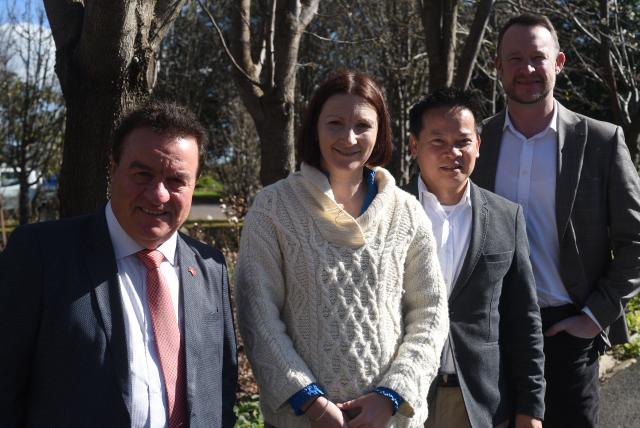
Charlotte Varcoe
A NUMBER of issues have been brought to the attention of the Legislative Select Committee on Matters Relating to the Timber Industry in the Limestone Coast and Other Regions of South Australia.
The committee made its way to Mount Gambier/Berrin earlier this week and took part in a number of tours prior to listening to a range of evidence given in person.
Evidence was given by a range of timber industry experts including Dr Jerry Leech, Roundwood Solutions managing director Stephen Telford and more.
Issues brought to the committee’s attention remained consistent including exporting and importing wood products, the water allocation plan and the future of the timber industry.
The call for evidence comes following the closure of submissions made to the industry which were from seven different industry experts or business.
Representatives from the Department of Primary Industries and Regions (PIRSA) and the South Australian Forest Products Association (SAFPA) also previously made verbal submissions.
Mr Leech discussed a range of issues which he previously highlighted in a written submission in 2019 including the water allocation plan.
He questioned the committee as to why the South East forestry plantation was included in water allocation while the forestry plantations in the Adelaide Hills were not.
Mr Leech also discussed the potential impacts future fires may have on pine plantations.
Mr Telford also spoke to the committee regarding the future of energy for the timber industry.
He spoke about biochar and its effects on growing products as well as calling for a code of conduct which would allow better governance within the industry.
Committee chairperson Nicola Centofanti said the evidence presented to the committee was mainly around water availability, water licencing and the water allocation plan.
“There was concern from the forestry industry about having the water licence to be able to grow the industry but on the other side of the fence, water is a natural resource and an infinite resource and obviously in the South East there is agriculture, horticulture as well as forestry,” Ms Centofanti said.
“There was also the long standing supply issue from local domestic processes making sure there is security in terms of log supply and contracts going forward.
“The main concern from those domestic processes was about how difficult it is to invest and plan to invest while growing their business when they are not having the supply contracts.”
She said the committee would continue to take evidence from other stakeholders over the coming two to three months before making a set of recommendations to the Minister for Forestry Clare Scriven and the current State Government.
“I envisage we will probably continue to take submissions and hear evidence until around Christmas time and we are hoping to get a report out in the first half of next year,” Ms Centofanti said.
“It is great for the committee to get back to the South East and hear from locals on the ground, have tours of some facilities from the processing and domestic processes but also from forest growers.







